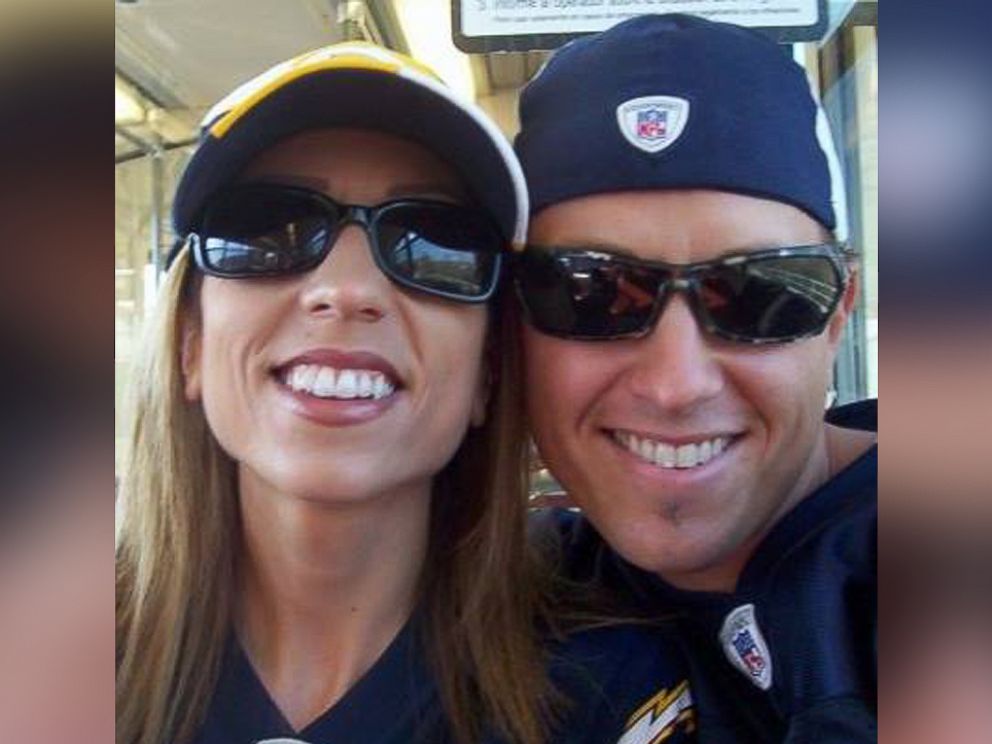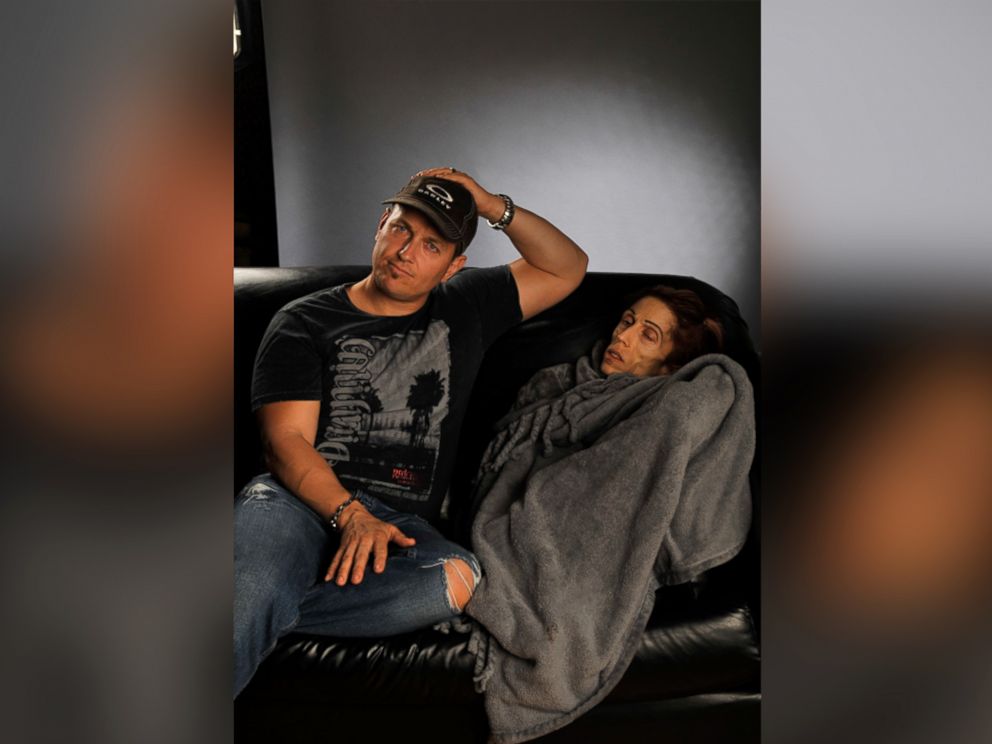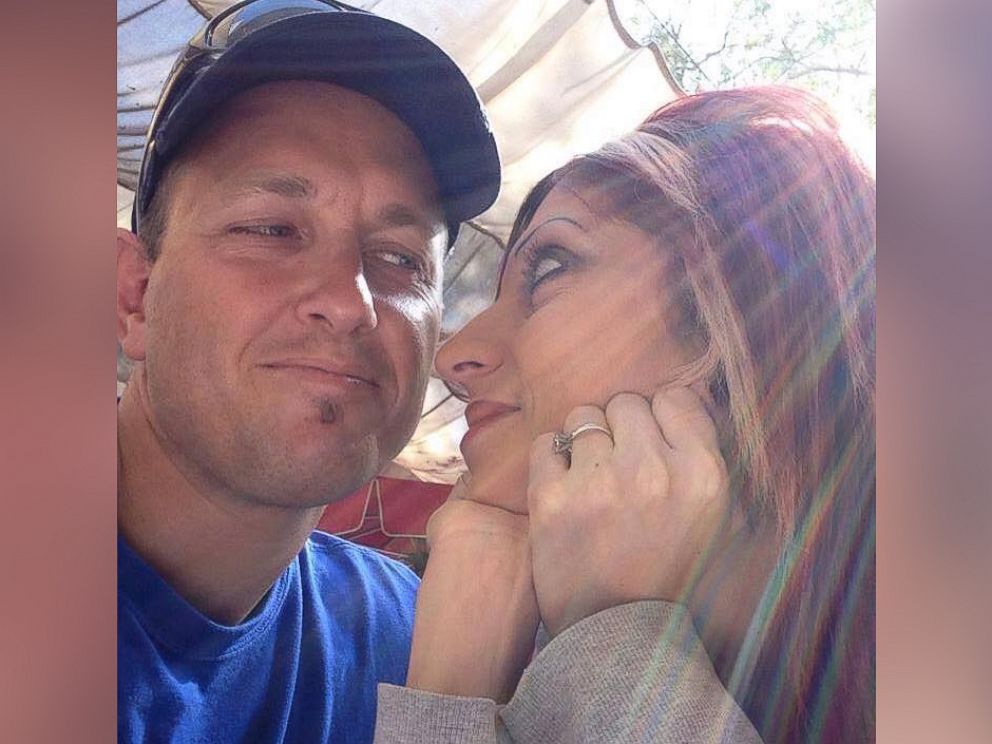California Woman's Shocking Descent Into Anorexia, in Her Own Words
Rachael Farrokh said she looks back at the girl she once was.
— -- Rachael Farrokh, 37, says she has been fighting a battle with anorexia for 10 long years -- but now, an extreme decline in her health has her determined to seek treatment and share her story with the world.
Prior to her 10-year journey, Farrokh was the girl next door -- beautiful, talented, healthy and smart, according to her husband, Rod Edmondson, 41, of San Clemente, California.
"She was a very active individual growing up," he said. "She was valedictorian, graduated summa cum laude. She's a perfectionist."
However, as her illness took hold, the 5-foot-7 Farrokh went from weighing a healthy 125 pounds to a now-shocking number that she asked not be disclosed. Farrokh, now so thin you can see her bones through her skin, spends her days and nights in a hospital bed inside her home.
"My sister gave me a collage of pictures of when I was acting or doing certain things," Farrokh told ABC News. "I look at that girl, the head shot, it's only a few years old. It's like I know I've wasted this much of my life. I just want to be that person again -- that strong, independent woman that can be herself."

The couple met while Edmondson was working as a personal trainer at the gym where Farrokh was a member for years. He said he is now unemployed and acting as his wife's full-time caregiver -- and both say Farrokh now wants to accept help, but it may be too late.
Edmondson has created a GoFundMe page to help cover Farrokh's medical expenses in hopes that they can get her into a facility that can help her. But because Farrokh's weight does not reach the minimum weight requirement set by certain facilities, she and her husband said, she is unable to go through recovery at a hospital or a treatment center.
Dr. Michael Strober, professor of psychiatry and director at the eating disorder program at the Resnick UCLA Neuropsychiatric Hospital, said the refeeding process can pose potential dangers to a person depending on their age, past treatments and the severity of the illness.
"Refeeding syndrome results from metabolic changes that are associated with feeding an individual who has been calorie-depleted," Strober said. "So, the feeding needs to be carefully monitored. The refeeding syndrome will involve the body’s attempt to adapt to sudden introduction of nutrients. ... Too rapid increase of calories can result in the metabolic adaptation which is associated of a number of hazards, which can be life-threatening."
Farrokh said that the severe drop in her weight has caused her serious health problems, many of which have almost cost her life.
"I've had heart, kidney and liver failure and osteoporosis for the past seven years," she said. "When I went to the hospital in January, they flooded me with fluids and I gained 40 pounds overnight in water weight. That's when my body started shutting down."

Farrokh said her weakened state became more evident after she took a hard fall in her home in September 2014. Since then, she said, she has been unable to walk on her own or do simple tasks without her husband's assistance. Edmondson now carries her, bathes her and attempts to keep up with her sporadic sleep schedule.
"What's funny [is] it doesn’t really sink into your psyche," she said. "You say, 'OK, I'm going to get up and brush my teeth. Oh wait, I can't.' Even in my dreams, I dream as how I used to be."
While she's still able to articulate herself, Farrokh often loses her train of thought. Edmondson will then help her continue conversations.
"At such a low body weight, my brain is a little slower than I would like," Farrokh said. "Sometimes, you'll forget what you said a few seconds ago. You're just not on your game.
"I want other anorexics to hear this," she added. "This is miserable. Everything hurts from my head down to my toes. It’s really hard to [stay on topic], so what I try to do is have conversations with Rod and keep in contact with other victims on Facebook to be encouraging and supportive of one another."
Farrokh said she is desperate to make a full recovery and plans on opting for either professional home care or checking herself into a particular out-of-state clinic that may accept her.
"It's one of the options, but now we are getting some news that they want me to do a medical check to see if I can be lifted" to the clinic's location, Farrokh said. "It's one of the only places that will take me."
The clinic declined to comment on any particular case, citing privacy laws.
Both Edmondson and Farrokh said that, at first, they never saw signs that Farrokh was suffering from an eating disorder.
"I was a senior account executive," Farrokh said. "I was this doe-eyed girl that was just graduating college in a failed atmosphere, and I was also going through trauma from my past. It was the perfect storm."
Farrokh believes her anorexia spiraled out of control after she lost her job, she said, and as she continued to deal with a painful memory from her past, which she would not disclose.
“I just felt out of control,” she said. “At first it was innocent, where I wanted to drop a few pounds to get better abs.”

In an effort to expose the unvarnished reality of Farrokh's current state and help her stay on the path to recovery, her husband enlisted the help of a friend to film his wife going about her day-to-day activities.
"Rachael's weight was so low and we had a photographer do some shots," Edmondson said. "She wants to have a purpose, to help people and raise awareness."
The footage reveals how Farrokh's eating disorder has changed her life drastically -- altering her appearance and limiting her mobility.
Farrokh said she sometimes gets backlash for her outward appearance.
"I've had some woman at Target walk by and say, 'I hope you have a disease, looking like that,'" Farrokh said. "But now that I'm in a wheelchair, the looks are more for pity."
Laura Discipio, a licensed clinical social worker and executive director of the National Association of Anorexia Nervosa and Associated Disorders, said such attitudes are unfortunate because anorexics are suffering from a mental illness.
“Something shifts in their brain ... and we are just now working on the resources to really get the research to figure that out,” she said. "Just as you are compelled to go off your diet, they are just compelled to stay on it. Just as you are compelled to eat, they are compelled to restrict. It is a psychiatric, biological illness. It is totally not a choice. Anorexia has the highest mortality rate of any mental illness."
Should she recover, Farrokh plans on continuing to talk about the dangers of anorexia to those who are going down a similar path.
"To be honest, I live moment by moment, day by day, because my odds aren't very good," she said. "The recovery process for an anorexic, it's ridiculous. If you're going to make it, you're going to have to get out there. You have to go out and meet life. Go to treatment because it's not going to come to you."



